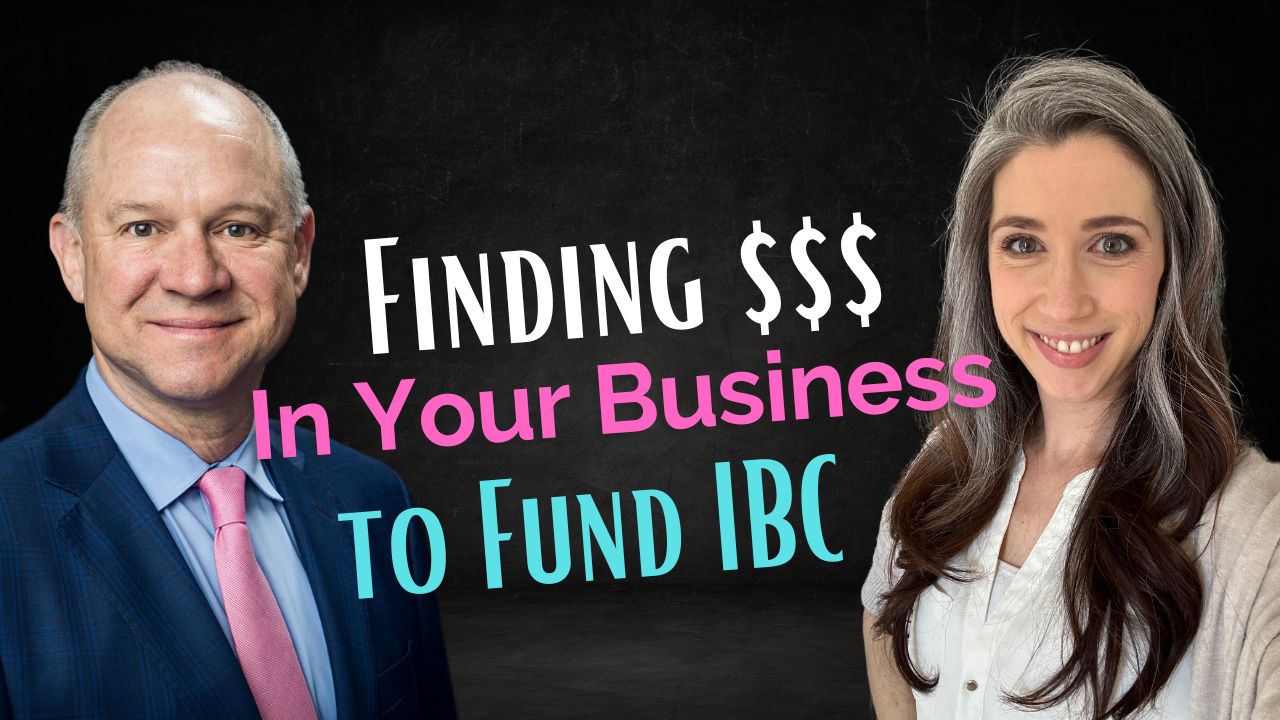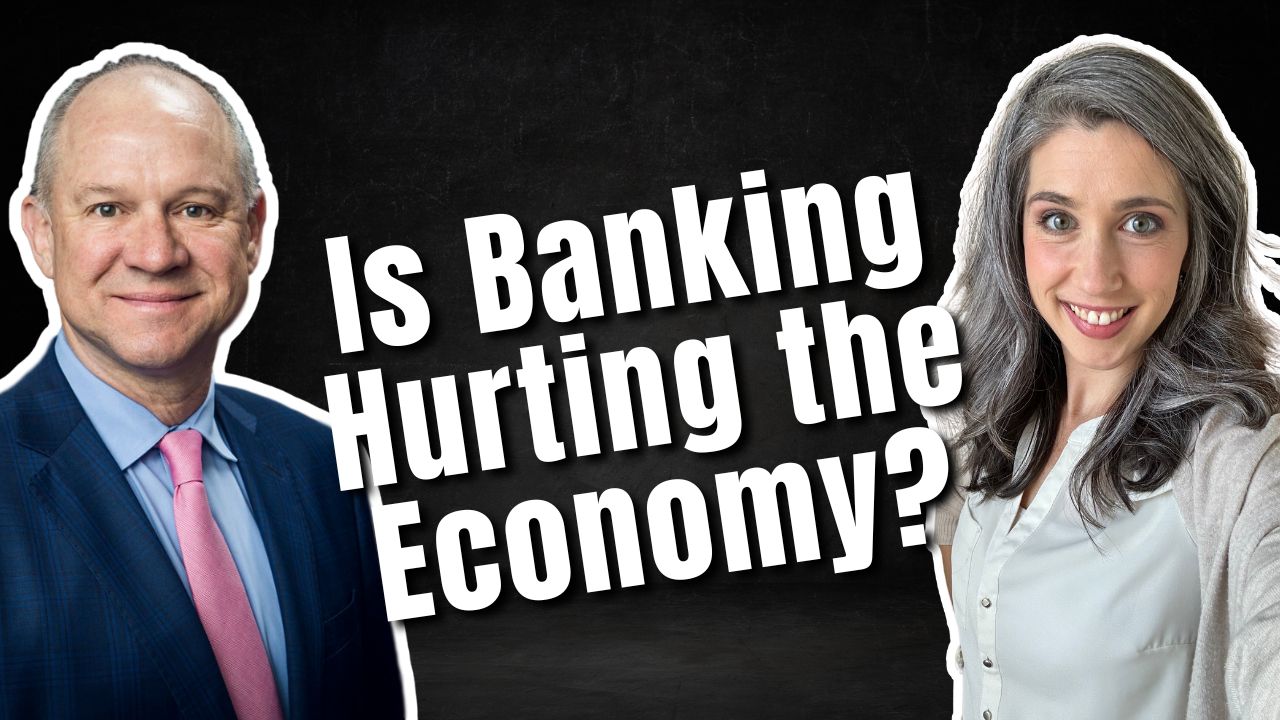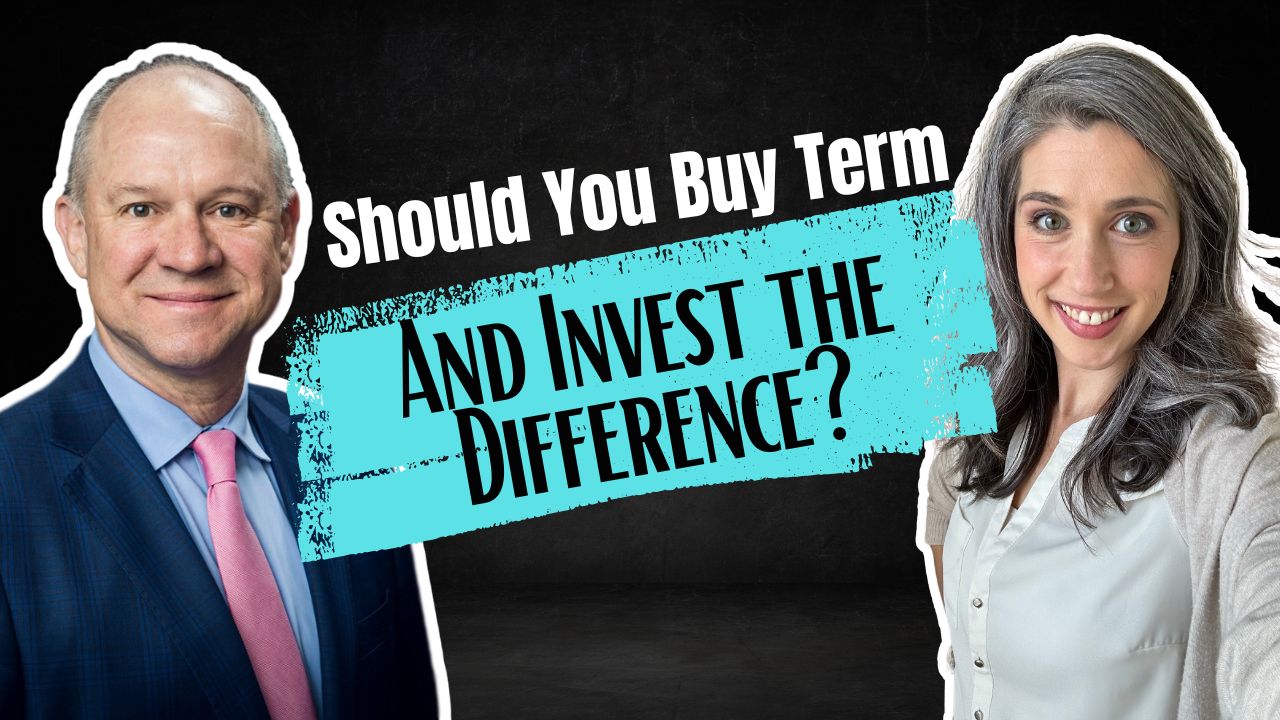
Finding Money in Your Business to Fund IBC
Is it possible that you have areas of inefficiency in your business or cash flow that could be better used to fund IBC? It’s time to discover some of the top inefficiencies in your business where you can recover excess money flowing out of your control.
Many people have money paying for expenses that could instead build capital reserves, a warehouse of wealth, solvency and stability, access to cash, and even the funding for a buy-out or to weather an uncertain economic future … and also still be used for the same expense.
In other words, you can be more efficient with your money if you think differently.
Discover the secrets to finding and freeing up money in your life and business to fund infinite banking premiums in today’s insightful episode. We’re sharing concrete examples, strategies, and tips that will help you save money, optimize your loans, and maximize the benefits of the Infinite Banking Concept. It’s time to unlock your financial potential and run your life like a successful business!
Podcast: Play in new window | Download (Duration: 55:53 — 64.0MB)
Subscribe: Apple Podcasts | Spotify | Android | Pandora | RSS | More
Table of Contents
The Basics to Fund IBC
If you’re a business owner and investor, you may have several streams of revenue and questions on how to use them. In this case, is there an ideal way to fund IBC policies? And how can you creatively manage your cash flows for maximum efficiency? These are important questions to be asking as you work to build your pool of capital and use it, too.
Foremost, building capital takes capital. In this case, your capital is your premiums and PUAs. When you pay them, you’re contributing directly to your cash value. If you don’t have the cash flow to fund your policy without taking on debt, you’re not in a position to start a policy.
For example, if you wanted to use business assets to pay premiums, then use the cash value to pay back those assets, you’re actually doing things backward. What will happen is that you have to take a policy loan, so you’ll just be creating more and more debt that can get out of control, and adding interest on top. If you want to leverage your cash value, you want to leverage it for new assets that bring in cash value, not old assets. Otherwise, you’re just taking from yourself and reducing your reserves.
How Do You Find Money in Your Business?
But what if you do have assets in your business that you can use and won’t require you to replenish those assets? That way, you can still use those first years as a growth phase, which will give you a stronger capitalization phase later on.
One way to find money in your business is to save money on taxes. You can do this, depending on the advice of your CPA, by choosing to have an S-Corp instead of an LLC, for example. This may help you to reduce your taxes, thereby giving you some extra capital to funnel into a policy. Of course, there are other tax reduction strategies that you can look into with your CPA with similar results.
[17:00] “You do need to pay the IRS what’s fair and square, but you don’t need to tip them. You don’t need to pay what’s more than necessary. So it’s about being strategic—it’s not finding loopholes, it’s using the tax code.”
Another way to find money is to reduce expenses elsewhere. Many of your bills are likely negotiable, and it doesn’t hurt to try. If you have a brick-and-mortar business, many of your overhead expenses can likely be negotiated. In addition, you can raise your insurance deductibles to lower your monthly cost. You can then use the difference to accelerate your IBC savings. If an accident does occur, you’ve got capital in reserves.
You can also increase your cash flow in ways that don’t have a significant cash investment, so you can use all additional cash flow for your life insurance policy. These are all ways to improve the cash flowing into your IBC policy.
Structuring Loans for Increased Capital
Another way to increase the capital you have to contribute to your policy is structuring your loans to have low payments. For example, taking a 30-year mortgage over a 15-year mortgage can give you a significant monthly boost to your cash flow, which can be applied to growing your capital. The same can be said of car loans, personal loans, and anything else.
Naturally, you may be thinking, “What about all the extra interest?” To that, you have to remember that the money you’re saving is contributing to an ever-increasing pool of capital that is also earning interest and dividends. And the sooner you start, the more time you’ll have to grow that pool and increase our volume of interest. That money can eventually be used to partake in a new opportunity that brings you more cash flow in your business.
[31:28] “You’ve got to change the way you think when it comes to your business. It’s all about the cash flow of your business, not your [debt service], because that could be 15, 20 years out.”
Don’t let your fear of debt or interest keep you from making choices that will ultimately improve your prospects in the long term of your business. You have to have capital. And the longer you wait to build your capital, the harder things are going to seem when you need that capital.
What Should You Finance with a Policy?
Although a policy is the place to store your cash, you’re not going to see a dollar-for-dollar cash value in the first year. In the first 7-10 years, the cost of your insurance—what the company pulls for themselves—is going to eat into your cash value. However, around that 7-10 year mark, you’ll hit a break-even point, and your cash value will be more than the sum of all your premiums.
This means that if you want to contribute $100k to a policy and then take out $100k, you won’t be able to. You won’t have the cash value. You’ll still have a good store, but it won’t be dollar-for-dollar yet. And what you do have, you can’t pull out via a loan at 100%. The company will only allow you to leverage about 92% of that value. You don’t want to redline your policy.
In other words, you’ve got to be patient, and you can’t expect to leverage your policy from day one (although you can). You want to be strategic if this policy is meant to last you over your lifetime. Don’t be afraid to capitalize, but don’t do it at the expense of your long-term asset.
[46:43] “This all is leading toward this idea of [getting] started as soon as possible, but in a prudent way… You want to start a policy before you feel like everything’s under control and before you have enough money to fund all the policies you’ll ever fund. So start now, the sooner the better.”
For Further Reading:
- Cash Flow Index: The Smartest Way to Pay Off Debt
- How to Pay Less in Taxes, Legally
- Why Debt Free Doesn’t Make You Financially Free
Book A Strategy Call
Do you want to coordinate your finances so that everything works together to improve your life today, accelerate time and money freedom, and leave the greatest legacy? We can help! Book an Introductory Call with our team today https://themoneyadvantage.com/calendar/, and find out how Privatized Banking, alternative investments, or cash flow strategies can help you accomplish your goals better and faster. That being said, if you want to find out more about how Privatized Banking gives you the most safety, liquidity, and growth… plus boosts your investment returns, and guarantees a legacy, go to https://privatizedbankingsecrets.com/freeguide to learn more.
Fractional Reserve Banking Creates Inflation: Infinite Banking is the Solution
Inflation causes everything to feel more expensive, so what do you do to protect your money from inflation? Today, we’ll explore the link between inflation and fractional reserve banking, and how Infinite Banking is the sound money solution. A thought-provoking journey through inflation, fractional reserve banking, and the revolutionary concept of infinite banking. This episode…
Read MoreBuy Term and Invest the Difference: Here’s What’s Wrong
Are you trying to decide which type of life insurance to buy? You want to protect your family in case something happens, so how do you do it best? Whole life insurance is often rejected as expensive and a poor “investment,” while mainstream opinion leans in favor of the “buy term and invest the difference”…
Read More



Hello, would you please give me your location,locations. Thank you,dennis
We are in Chesapeake, VA, St. Louis, MO, and Phoenix, AZ. However we operate online and serve all 50 states in the US. Thank you!